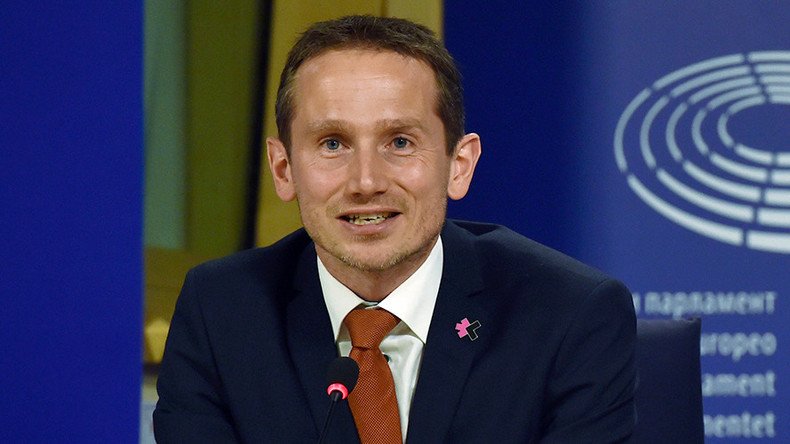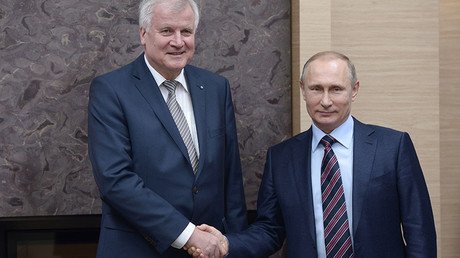Denmark to Ukraine: Follow Minsk agreement, or we could drop Russia sanctions

Ukraine must take the steps to peace agreed a year ago in Minsk, or risk losing the support of the European Union, said Denmark’s foreign minister. Earlier this week other western powers criticized Kiev, following the resignation of a key minister.
“If Ukraine doesn’t come through with the reforms linked to the Minsk peace process, it will be very difficult for Europe to continue united in support for sanctions against Russia,” Kristian Jensen told Reuters at the EU foreign ministers’ meeting in Amsterdam on Friday. “Ukraine has a deadline. They need to push those reforms now, they can't wait.”
Signed by Ukraine, Russia, France, and Germany last February, the Minsk accord lays out 13 steps to secure the end of the armed conflict in Donbas, in eastern Ukraine, which broke out in 2014, after people in the regions refused to accept the forceful change of power in Kiev. The conflict has resulted in over 9,000 deaths and the displacement of more than 2 million people, according to the UN.
The initial stage prescribed a ceasefire, the pullout of heavy armaments, and the introduction of comprehensive international monitoring. Later, a constitutional reform would grant more autonomy to Donbas, which would conduct local elections.
While active fighting has mostly died down, Kiev and the insurgent Donetsk and Lugansk republics, which have a combined population of over 2 million, have not been able to agree on a permanent solution, forcing an extension of the international accord.
Despite a growing number of politicians urging the dismantling of anti-Russia sanctions, Moscow remains under EU restrictions, last extended in December, for purported involvement in the conflict, and the earlier accession of Crimea to Russia following a referendum in the former Ukrainian autonomous region.
Fundamental support for Kiev’s EU-oriented government has remained in place. However, the West showed its frustration earlier this week, when economy minister Aivaras Abromavicius resigned acrimoniously, accusing top officials of “blocking reforms” and “evil forces” of trying to “siphon billions from the public purse.”
READ MORE: Ukraine’s economy minister dramatically resigns, citing covert corruption
Ambassadors from the US, UK, Germany, France and other countries, in a statement on Wednesday, expressed “deep disappointment” with the rift.
Jensen said the public scandal was a signal for Europe to do more, and a symptom of a government that has been unable to carry out promised measures to overhaul police, energy companies, and customs, in a country that has regularly been ranked as one of the most corrupt in the world.
“We are all running around with our own small, pet projects,” said Jensen. “Many of them are good but none of them are sufficient to make a visible change in Ukraine.”













